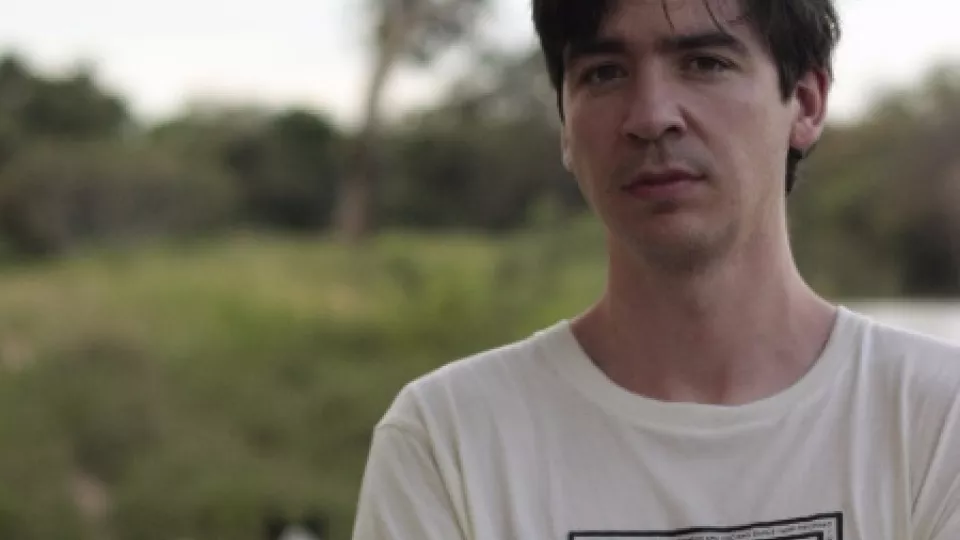Timos Karpouzoglou visited LUMES and LUCSUS on 24th November to hold a round table discussion on the ‘elephant in the room – power’. Here is his guest blog on reflecting on the round table discussion:
Bringing the Elephants to the table: What is the role of power in sustainability research?
We live in a warming and increasingly unequal world. Moving towards safe and just futures requires transdisciplinary sustainability science that adequately incorporate the social and natural dimensions of contemporary crises (Hackman & St.Clair, 2012).
We are however often confronted with the reality that these integrative attempts can leave behind tensions and grey-areas. An often asked question is: What about power? Power continues to be a central concept shaping our shared understanding of the interactions between humans and the environment but has generally remained elusive in sustainability research (the elephant in the room) (Ingalls, & Stedman, 2016). A positive recent phenomenon is that more scholars are becoming interested and are moving forward with efforts to embed power analyses in sustainability contexts, and bring their unique perspectives to bear on these issues.
At the round table discussion we jointly reflected on how power shapes both us as researchers and the research that we do, to consider the negative effects of power as well its emancipatory potential, and discuss how to forge new collaborations that have power as their focus.
How we define power matters
Within sustainability research there are different disciplinary traditions and these different traditions have a different understanding of power. Because “researchers have different backgrounds they also tend to frame power differently” says Dr Christine Wamsler.
In the context of sustainability research therefore, an important first step in order to have a dialogue around power, is to understand each other when we talk about power. As researchers, understanding each other may mean how does the specific choice of theory affects our ideas about what power is (ontology)? But also how we conduct research with a power lens (epistemology)? Grappling with the idea of power means that certain lenses are relevant for particular sets of problems and not others. It also means that in some disciplines a power analyses may have matured faster than in others.
In other words while ‘sustainability’ as a community and a set of challenges to address may bind us together, we should not lose sight of the unique ways in which as researchers talk differently to power and to the challenges of sustainability more broadly. This means that we do not all understand power in the same way. Some communities, Political Ecology, for instance, already have power as a core motivating concept, so we should not lose sight of the tremendous progress made in these communities, or risk re-inventing the wheel.
That said what is perhaps less explored in sustainability research is the role of collaboration between scholars with different traditions of using power. As Stephen Woroniecki says, perhaps “different types of power lenses are needed to highlight different aspects of a sustainability challenge or particular case”, and where we might be limiting ourselves today is in having less opportunities to work with each other and to cross-fertilise across the different power perspectives that we bring into the research.
Using the right language to talk about power
It can be very sensitive to talk about power in many research settings. As researchers therefore we often find that we need to be careful about how we use this term when we interact with our research partners.
We may know that power exists in the research setting we operate in but we need to find ‘smart tactics’ to work with it and to effect change where this is possible, since it may not always be possible. There are trade offs involved.
This is something that is often not acknowledged. It may be easier to write academic papers and develop sophisticated power analysis frameworks, but in the real world talking about power in explicit ways tends to be very hard, and often avoided.
This is further related to the different identities we hold as researchers. Some of us may find that we have a role in changing power relations through action-oriented research (we may see ourselves more as research activists) while others want to understand power (the mechanics of how power works) but not necessarily see our roles as changing the power structures in place. Within sustainability research, there should be perhaps space for different identities, but this need to be made more explicit.
Looking into the future
As Emily Boyd, Director of LUCSUS said, “We have come closer to place where it is acceptable to talk about power, so it is a timely topic”. She continues “it is therefore important to create space for sustainability scholars to be brave and to engage with more radical ideas around power”.
To be brave is important as it can mean that there is a need to render visible the assumptions of one’s own discipline. For example for some researchers to be brave may mean to challenge the implicit assumptions of the frameworks as part of which they operate. It may also mean that it becomes legitimate and necessary to operate at the margins of their own disciplines rather than at the core. Because it is at the margins, where new opportunities can be created to engage with other types of perspectives and to open up space for radical ideas to enter the discussion.
References
Ingalls, M. L., & Stedman, R. C. (2016). The power problematic: Exploring the uncertain terrains of political ecology and the resilience framework. Ecology and Society, 21(1). https://doi.org/10.5751/ES-08124-210106
Hackmann, H. & A.L. St.Clair. (2012) Transformative Cornerstones of Social Science Research for Global Change. Report of the International Social Science Council. Paris.
